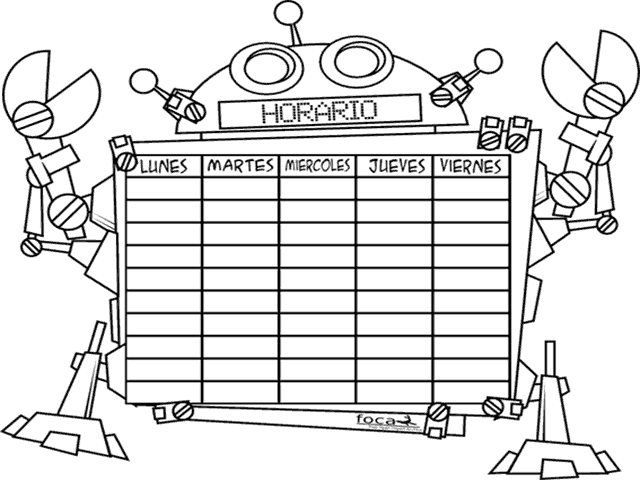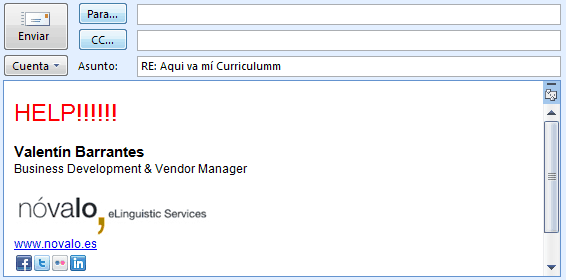
Think, therefore you act

By Susana Domínguez, Project Manager at Nóvalo.
Hello everyone! Now, it is my time to do my bit in this blog. After thinking for several days about a topic for my first post, I decided to propose some general guidelines to professionally shine as a project manager or freelancer. I know this is a quite hackneyed subject in many translation blogs; however, this is one of the most important topics and of course, one of the most influential matters in our daily work at Nóvalo.
Firstly, I would like to focus on the Project Manager figure. The Project Manager or PM is one of the key parts in our industry. She must coordinate all the efforts that a translation project delivery entails, together with the maximum final quality. Her tasks include the project receipt, material check, project organization, resource search and designation, purchase order creation, deadline planning, query management and quality control, cost control and profitability, actuation as a link between the client and the freelancer, troubleshooting,… amongst others.
Thus, a project manager or PM has a critical role as she holds the ultimate responsibility for the success or failure of a project. We are all aware that this job often requires a bit of juggling to make tasks fit and to solve complications. Therefore, my golden rule is thinking before acting; hence the title of this post, which is applicable both PMs and freelancers in the translation world.
In my opinion, the below mentioned points must stand out to become a good project manager:
1. To quickly reply to all e-mails
It is very important to reply to every e-mail from both clients and freelancers that work with you. Mostly times an e-mail reading “Received, thanks” or “Confirmed. No problem” is enough. However this is important to demonstrate your involvement in the project and to confirm the receipt of any instruction, reply, material, etc., so the other part will feel better.
2. To download, organize and check all material
When receiving a project, it is very important to check if you have all the material; if something is missing, you must ask for it immediately to avoid future delays. If some instruction is not clear, you must also ask for clarification as soon as possible.
3. To search for the appropriate resources
Once you have all the material (or handoff, the way we call it), you must search for the appropriate freelancers and plan the deadlines. This task is often difficult because unluckily we always work against the clock, the availability of the freelancers is limited and deadlines are very tight. It is at this point where the project manager must juggle to make tasks fit. Furthermore, an essential matter has to be added: the profitability control of the project, which maybe raises in a future post.
4. Project handoff
Once the resources are confirmed, it is crucial to send the project handoff as clearly as possible and to provide all the available information to the translators or editors to make their job easier. To this end, it is very useful to fully analyze the assignment and material first and to solve possible preliminary doubts or problems. It is also helpful to have project handoff templates, as they save a lot of time. Furthermore, if there is a lot of material, it is better to upload it to an FTP server (in an organized folder structure) to avoid the overload of the freelancer mailbox.
5. To pay attention to the project, manage queries and solve problems
The PM must always be worried about her projects and quickly react to any complication even if she must interrupt what she is doing. Furthermore, she must manage the queries sent by the freelancers; so she must read the queries and try to solve some of them if possible and, finally, she must filter the queries to send them to the client. The client will be grateful if queries are sent in a progressive way instead of sending all of them with the project delivery.
6. Quality control
The PM must do a final quality control of every project to check that instructions have been followed, queries are solved, there are no errors in translation, etc. In this step, quality control tools mentioned in one of the previous posts of our blog are very useful.
7. To meet the deadline and satisfy the client
The most important thing is to meet the agreed deadline and that the client is happy with the result. Of course, problems may often raise and the PM will try to ask for a reasonable delay. The client will also be grateful if the PM can offer good solutions or suggestions to these problems.
In our daily work, project managers work closely with our collaborators. Thanks to them we can deal with an important amount of daily projects. For this reason I would also like to briefly set out in this post the key attitudes that must stand out in a freelancer so he or she has our complete trust and has priority when we search for resources to send a translation project. I would highlight the following attitudes:
1. To quickly reply to all e-mails
Freelancers must quickly reply to any availability request (whether to accept or reject the job), project handoff, e-mail with instructions, queries, additional material, etc. during the course of a project. Project managers will be very pleased with freelancers if they show this attitude so professional.
2. To download and check all material
When receiving a project, it is very important that freelancers download and check if they have all the required material as soon as possible and that they understand the project instructions. Although they are not going to start the project immediately, it is helpful to make a bit of time to have a look at the material and solve possible preliminary doubts.
3. To solve problems and send queries
PMs will appreciate if freelancers try to solve problems on their own and they inform about the decisions taken. However, if there is some risky decision, it is better to ask for confirmation in advance. Queries must be sent gradually (it is not a good idea to send all queries at the end of the project or with the delivery, especially if the translation project is long). It is crucial to write queries in a clearly way. Freelancers must not be afraid about sending a lot of queries; this does not mean a less professional attitude.
4. To notify any unforeseen event/propose solutions
If there is any unforeseen event during the course of a project, freelancers must notify it by any means as soon as possible so the PM has enough time to react. Any proposed solution will be also valued.
5. To meet the deadline
This is one of the key points. Freelancers must never be late delivering a translation project and if they anticipate any delay it is better to inform about it as soon as possible. Even if they need a minimum delay of 20 minutes, it is always better to notify the PM.
6. Maximum quality
Of course, the above stated points have no sense if the projects are not delivered with the maximum final quality.
7. Additional valued attitudes
There are many others valued attitudes, for example: keep the e-mail subjects, notify your vacations, inform about your availability, notify a sick leave, inform about a project state during its course, do not send e-mails with big attachments, write clean and concise e-mails, call your PM if there is something urgent, make an effort and make a bit of time to help with a difficult project, adapt your translation rates in certain situations, etc.
Finally, I would like to thank everyone who has taken some time to read my post. I tried to sum up the most important attitudes, in my view, to become a good professional in this industry. Although I suppose most of them are obvious, I hope you will find them useful and I encourage you to add some key point in your opinion.
See you soon!




Sin respuestas a "Think, therefore you act"